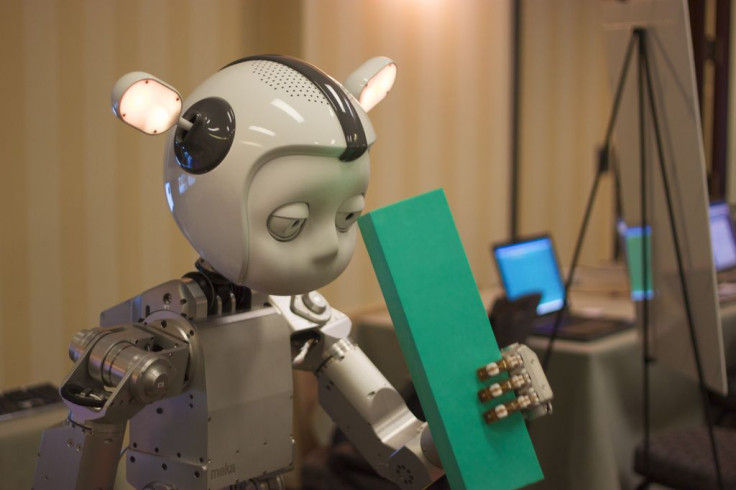Human Empathy Toward Robots Remains Mystery

As we hurtle through space toward a hypothesized future of unrecognizable change, researchers continue to glean insights into the most complex structure known to man: the human brain.
Not too long ago, investigating the science of why we love and how we feel might have seemed like so much foppery, a ridiculous conceit by researchers attempting to deconstruct the human animal. Now, scientists studying our empathic pathways make distinction between two modalities of empathic behavior — dispositional and situational.
While one might be the mark of what we call "character," the other is a rote response to stimuli in our immediate environment. German researchers found this week that although humans might not yet have much empathy for machines, we don't like seeing them abused or tortured.
At the University of Duisburg-Essen, researchers tested reaction to short films depicting human and robot interaction, with half viewing a faceless person making friendly overtures to a dinosaur robot. The other half saw something more like a slasher film, wherein the robot was choked, beaten, sealed in a plastic bag and then dropped. Researchers showed the videos to 40 subjects and measured emotional reactions using a skin conductance monitor.
In a second experiment, subjects saw similar scenes of good and evil but with a human woman and, as a control, a cardboard box, as objects of the behaviors. In the study design, investigators sought to retain similarity across the experiments, using the same yellow rope, for example, to "strangle" the robot, woman and cardboard box. In this experiment, 14 subjects watched the videos from within a functional Magnetic Resonance Imaging scanner.
The researchers saw mixed results, muddying conclusions about whether people felt empathy for the machines or simply recoiled from any suggestion of violence. In the first experiment, subjects reported more feelings of negativity following the robot torture film, with a higher recorded physiological reaction compared to the friendly interaction. However, the videos of the friendly interactions failed to produce positive feelings among study subjects.
Though the experimenters found no empathy among humans for the machines in the experiment, researchers believe humans might feel more for robots with humanoid qualities mimicking the human experience. Anecdotal evidence from military use of unmanned technology suggests that, at least in situations of combat stress, soldiers become emotionally attached to their machines, so much so they might even risk their life for a robot.
"One of the psychologically interesting things is that these systems aren't designed to promote intimacy, and yet we're seeing these bonds being built with them," Peter Singer, a leading defense analyst at the Brookings Institution and author of Wired for War: The Robotics Revolution and Conflict in the 21st Century, told media. In writing his book, Singer observed interactions between U.S. soldiers and robots used to destroy unexploded munitions.
Singer described a U.S. Army soldier, a specialist in explosive ordinance disposal, who ran 164 under "heavy machine gun fire" to retrieve a robot while serving in Iraq. "It sounds silly, but you have to remember that he's been through the most psychologically searing experience: battle," Singer said. "That machine has saved him time and time again."
Researchers said further study on more advanced interactions between man and machine might yield more interesting results.



























